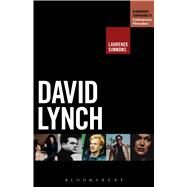- ISBN: 9781623566883 | 1623566886
- Cover: Hardcover
- Copyright: 12/14/2017
David Lynch is no stranger to scholars, critics and fans. From his first feature Eraserhead (1977), Lynch's films present us with a provocative world of weirdness and fantasy. Most work on Lynch uses a specific lens to assess his work, whether it's looking at the religious undertones to his films or his influence of music to his soundtracks. Laurence Simmons' work fills an important gap in the scholarship by looking at the acclaimed and influential director from all angles. Structured to meet the needs of both the student and scholar, Simmons' volume situates Lynch within his historical and critical context, exploring key collaborative relationships and new ways of watching his films. Beginning with Lynch's biography, Simmons surveys the evolution of Lynch's life and career from growing up in Northwest Montana and Boise Idaho, a 1950s childhood that is parodied in Blue Velvet (1986) to the interaction of his work as painter, record producer, song composer and comic strip artist with his work in cinema, and finally to opening up a new nightclub in France, Silencio (based on the club of the same name in Mulholland Drive).The volume includes two critical essays that examine Lynch's body of work by reconsidering the problem of cinematic realism in his work in the light of the emergent philosophical movement known as Speculative Realism. Through a close reading of a number of films (Eraserhead, The Elephant Man, Blue Velvet, Wild at Heart, The Straight Story) this chapter considers the potential relevance of Lynch's modification of theories of cinematic realism and his affirmation of cinema as a medium that has the capacity to affirm things-in-themselves without the presumption of a priori schemas of knowledge. Concluding with an appendix detailing key critical works and further reading and viewing, this volume is an essential addition to any institution where film scholarship and teaching occur.







